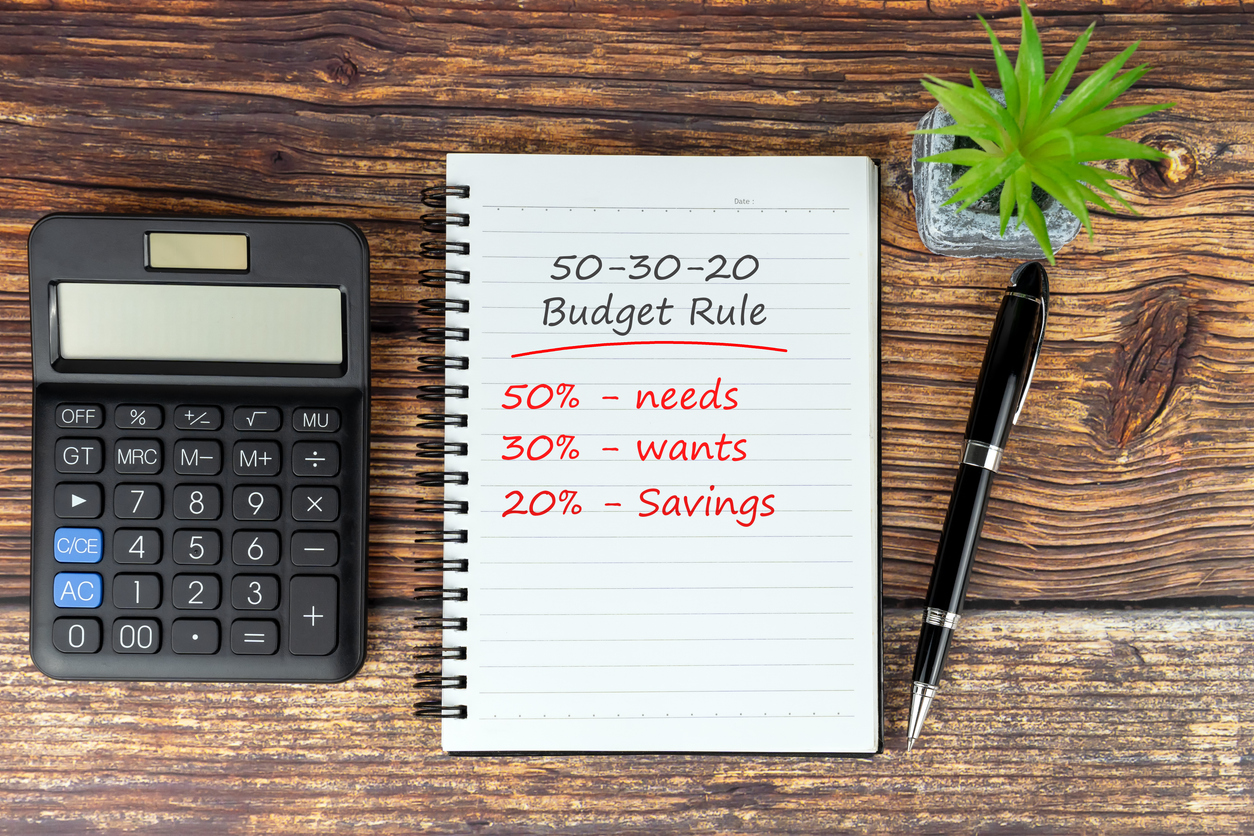When you ask most people why they work, they will likely answer: ‘Because I need the money,’ but imagine if you flipped that answer on its head and said you worked, so you didn’t always need to work in the future.
The pandemic has forced us to think about our discretionary spending. For some, it’s probably held up a mirror (and not a flattering one) to just how much money we spend for surprisingly little pleasure or benefit in return. In my case, the pandemic has shown me the gym is literally the most essential spend of my month and that my Cineworld membership is something that I don’t even miss – and I’m a hardcore classic film fan. Precisely the sort of films you don’t generally find at Cineworld on a Saturday night. Go figure.
Kim’s Tips For Seeking Financial Independence Alone
Money | 16th April 2021 by Kim Van Deere
Kim explains the meaning of financial independence (FI) and its variations and talks about her personal approach to FI. She also provides tips to other Solos who may also want to achieve financial independence for themselves in the future.

When you ask most people why they work, they will likely answer: ‘Because I need the money,’ but imagine if you flipped that answer on its head and said you worked, so you didn’t always need to work in the future.
The pandemic has forced us to think about our discretionary spending. For some, it’s probably held up a mirror (and not a flattering one) to just how much money we spend for surprisingly little pleasure or benefit in return. In my case, the pandemic has shown me the gym is literally the most essential spend of my month and that my Cineworld membership is something that I don’t even miss – and I’m a hardcore classic film fan. Precisely the sort of films you don’t generally find at Cineworld on a Saturday night. Go figure.
What is financial independence?
The pathway to FI (financial independence) is different for everyone, and it should be. To simply explain, it’s basically a combination of maximising earnings and investments while minimising living costs and other outgoings. Financial independence generally means being independent of a traditionally earned income. However, it doesn’t necessarily mean you don’t work at all or that you don’t still have a conventional or professional job. FIRE (Financially Independent, Retired Early) is the next step.
We are all on a pathway to retirement (hopefully!), at which point we hope to no longer rely on an earned salary. Instead, the intention is to replace salaries with an income from pensions, annuities and other investments like the sale of dividends from equity portfolios and other assets that can include income from rental properties that we put in place or purchased during our working lives.
Becoming financially independent in common parlance simply means non-reliance on earned income. Our rate of achieving FI is dependent on many things, including when you started your journey and how much of your income you can save and invest. Working comes with many attendant constraints and stresses, benefits and stimulation.
My path to financial independence
Moving toward FI became a focus for me quite early in life. I enjoy working, but I am also conscious that so many people live month to month, without accumulating assets and with little to show for their years of hard work. I jokingly say: ‘I’m not rich enough not to invest’, by which I mean I still need to accrue more assets to fund complete liberation from an earned salary.
FIRE – Financial Independence Retire Early
I think FI is realistic, but it requires an approach to allocating resources in line with the kind of commitment and aggressive investing which many people choose not to adopt. I’ve found many people working towards FI work in more demanding professional roles but choose to live frugal lifestyles when they are younger.
They work to accrue assets with one eye on the long game – to achieve mid-life financial independence, many only associate with later retirement. This approach is called Financial Independence Retire Early (FIRE).
Needless to say, it’s much easier to achieve FI if you opt for a post-retirement lifestyle that only costs £20k annually (and indeed if you earn an above-average salary while working). If you have been earning £60k for ten years while living on £20k (or even better, £15k!) FI is within easier reach than if you have been making £30k and living on £25k.
Origins of FI and FIRE
Interest in the concept of FI and the FIRE community caught light during the post-dot.com boom. Many IT professionals from Silicon Valley and beyond earning huge salaries in highly pressurised jobs were determined to make their fortunes quickly and then quit early to pursue more life-friendly goals. Since then, the movement has since gone proudly mainstream, crossing the Atlantic and has subsequently diluted down, becoming more popular and widespread in the UK.
There are plenty of variations on FI(RE) now, including the comically titled Barista FI, typified by the former professional who now works in a less pressurised job to generate just a little more earned income to supplement living costs, perhaps as a lifestyle choice. Lean FI is adopting a very frugal lifestyle to accelerate the value of your asset pot (and is not for the faint-hearted). Living in a Tiny Home and reusing teabags doesn’t suit everyone.
Solos and financial independence
So why can the path to FI be different for singles? I’ve found incredible financial liberation as a single person. Relationships complicate things, particularly as we age and bring legacy financial issues from our former lives to bear on our new romantic arrangements. As a single person, I am entirely responsible for my chosen financial pathway’s ups and downs, and I love that.
I have always been very focused on making money work for me. Even in my first jobs, when I earned relatively little, I was always passionate about investing in share options, discounted share offerings, side hustles, second jobs and overtime. All my homes have been fixer-uppers. It would genuinely never occur to me to buy a home that didn’t look like a falling down Venezuelan prison or consider a new car when pre-owned provide better value or sink any significant money into designer clothing. Not even now, when I can afford not to live cheaply, have I deviated much from my frugal pathway. For me, the long term goal of FI, and working less, or not at all, long before most people consider retirement, is priceless.
Frugal living (for me, loosely translates as living on significantly less than you earn) is often more easily achieved alone. Relationships mean compromise, as they should, but while we don’t have to compromise, here are a few tips on how to maximise the leverage:
Get excited about personal financial management
In my experience, many people spend their salaries almost on autopilot, rather than considering whether that money should have another home. Consider paying yourself first, by which I mean allocating funds to chosen investment or savings products before deciding to hit the shop/bar/salon – (insert spending emporium of your choice here). Think about providing for another ‘future you’ if that helps. Without getting too down in the mouth here, the future you might still be single, a bit less physically or mentally able, a bit more jaded, and a bit more in need of a financial cushion.
Choose the life you want and act accordingly
You can have anything you want – but not everything you want. Personally, I don’t care about going out for fine dining. Really. I’m a great cook, and I love entertaining at home. I opt for casual dining and at that, probably an entree and a single glass of wine all the time. I do it because it’s a convenient way to get together with friends.
I don’t skimp on travel, outdoor experiences, private physiotherapy or personal development courses because those things are personal investments with value beyond rubies to me. Save where it doesn’t matter to you, but don’t rob yourself of a joyful existence. Think about the time cost of every purchase, though. How many hours of paid work will a new home cinema system set you back?
Don’t sleepwalk into significant financial decisions
…And don’t follow the crowd unless you’ve independently verified that they are right. It’s worth spending much more time considering your long term financial investments than you do this year’s car insurance premium. Really. And I know we tend to focus on the short term, the quick wins, and the easy stuff.
Retirement planning is complicated. It means you need to give it more attention, not less. I think about what I want my future to look like all the time. It’s worth every penny of what you’ll pay to get a good IFA (independent financial advisor) to scrutinise the value of your products. You may want an IFA to review historical final salary schemes, current defined contribution schemes, projected state pensions, current equity holdings in ISAs etc.). They can help advise on you what you need to do to get from here to an enjoyable future retirement. My IFA says no one is ever shocked by how much they have, only how little. But find out now while there’s still time to act.
Not everything needs to be lux
Can you drop a brand? Serious question from someone who used to be Miele all the way. It’s probably worth buying decent shoes, but maybe your shirts could be from H&M? If you’ve always shopped in Sainsbury’s, would it kill you to try Aldi? Could you shop in Lidl once every couple of months for canned goods and detergents?
I resist as much as possible the lure of celebrity lifestyles, as they are generally unaffordable on a non-celebrity salary! Also, I’m the child of immigrants. My parents actually emigrated twice, once in 1960 to South Africa and then again in 1973 when my mother returned to the UK. Those kinds of moves are expensive and disruptive, and they require a particular ability to adapt to circumstance that I’ve enthusiastically embraced. I will shop second hand. I will hang out on Freecycle. I will give handmade gifts – all without embarrassment. If I had my way, we’d live above the shop, and all the bambinos would work!
Spend other people’s money
It’s not illegal if you do it right. Some professional memberships and costs can be offset if submitting a tax return, as can some of the costs of working from home (which many of us have been doing more than usual in the last year). I frequently put forward training proposals to employers to suggest they contribute or pay outright for my professional development course of choice and have seldom been refused. No one else seems to do this, and I’ve no idea why not. Clip coupons, participate in free trials, road test pilot projects or friends’ business ideas if they sound like fun, volunteer at events, participate in public opinion panels. All can generate savings, a discretionary payment, the warm glow of participation in public life, a free lunch…
Fundamentally, everyone’s path to financial independence is unique. Just make sure you find your own.
Here a few links to my favourite (US-based and reasonably hardcore) frugal living and FI websites:
Please note: All information provided in this article is correct at the time of publication, however sometimes information gets out of date. You should not rely on this information when making financial decisions as no financial advice has been given. The article is intended to be informative only. If you’re not sure what to do when making financial decisions, then consulting a financial advisor should be your next step who may well charge for any financial advice they provide.
Share this post:
Hear from Solo Living now and then by signing up to our mailing list



















1 thought on “Kim’s Tips For Seeking Financial Independence Alone”
Hey, thanks for sharing your thoughts on financial independence . Your website has quickly become one of my favorites, and I can’t get enough of your insightful blogs.
Comments are closed.